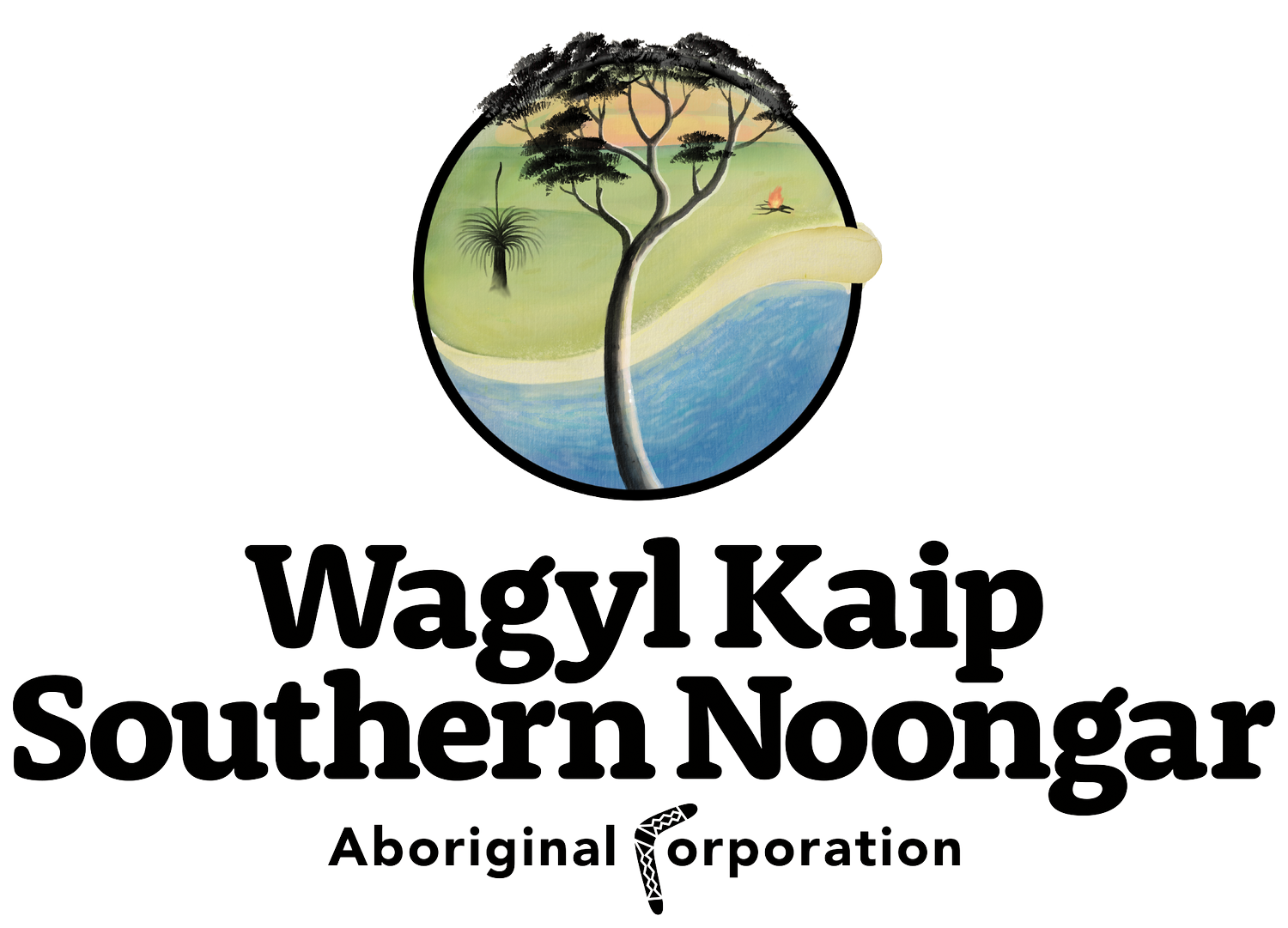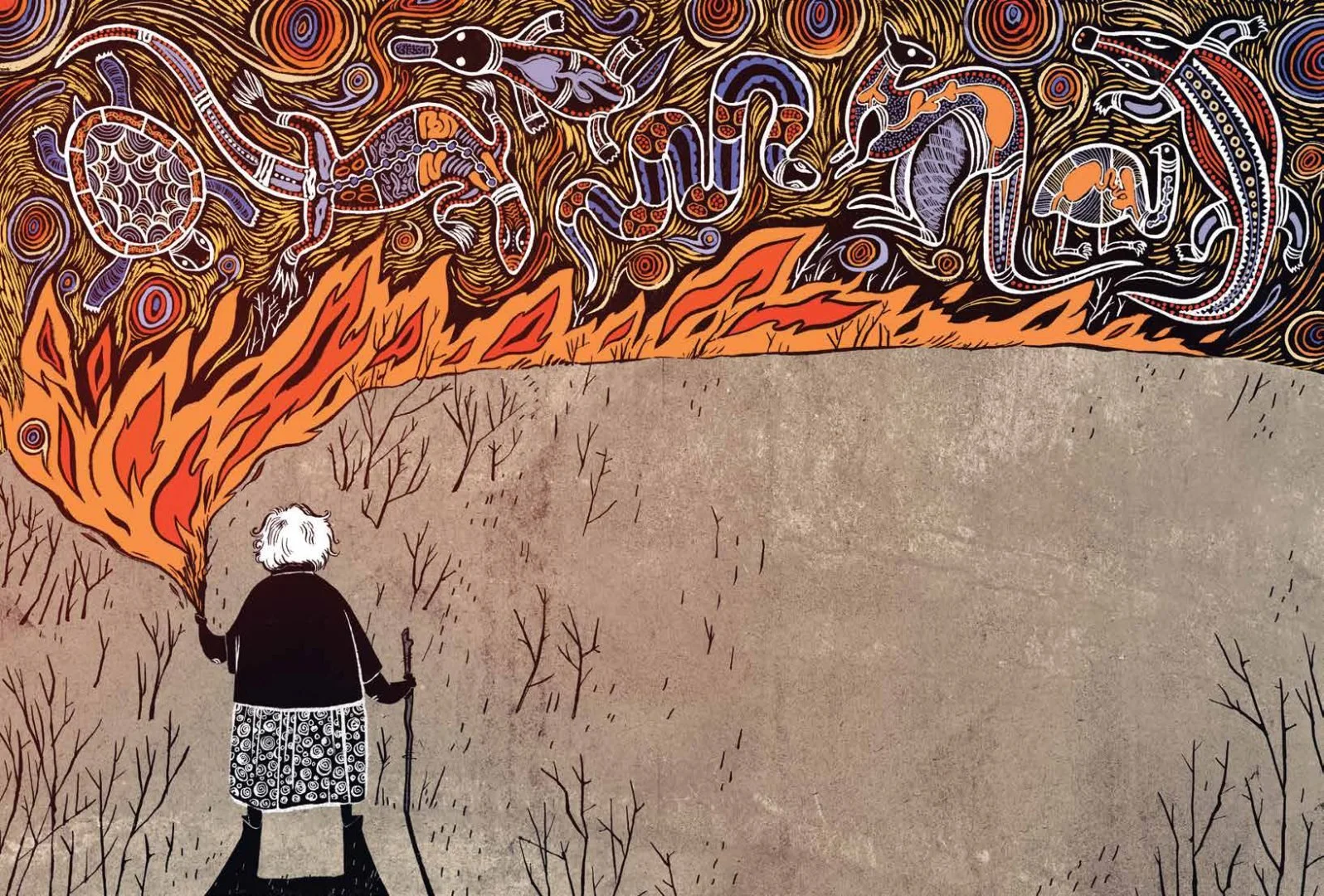The land that is coming back as part of the NLE all needs fire management. WKSN employed Sean Winter as Cultural and Statutory Fire Coordinator (CSFC) in November 2024, to make sure this management occurs. “Management” means two things: first, meeting the wadjela statutory requirements such as installing and maintaining fire breaks, reducing fuel loads, and ensuring access for fire trucks. But second, and more importantly, it means developing a Noongar cultural fire program so fire can be returned to Boodja, in the way it was done before the arrival of wadjelas. Cultural fire puts the needs of Country first and uses fire to keep Boodja healthy, rather than just aiming to reduce the hazard, which is the wadjela way of burning. We can’t just go and start burning though, first we need to make sure any burns we do are legal, that all the people who do the burns are properly trained, that we have the right equipment, and that burns are overseen by Elders to ensure they are done the right way.
Since November 2024 the CSFC has been developing a broad based Fire Strategy to drive fire management on land that is coming back for the next couple of decades. The strategy considers all aspects of fire management, both Noongar and wadjela. Developing the Strategy has involved on-Country meetings with Elders, to discuss the best way to bring fire back to Boodja (there will be more of this in the coming year). It has also involved assessment of the land that has already come back, and those parcels that will be coming back next for their statutory fire requirements. This is reasonably easy to do, as it just means working out what the requirements are in a particular local government, and then ensuring they get done. A good example is the block out at Frenchman’s Bay, which needs a fire break installed to make it compliant under state law. The CSFC has also been working with both groups of WKSN Rangers in both Albany and Kojonup, as they will be doing much of the work of maintaining the land that is coming back.
Returning cultural fire to Boodja is more difficult. A lot of the land has very heavy fuel loads on it, which need to be dealt with very carefully so we don’t torch the country and do a lot of damage. We hope to be able to do the first burns in Autumn 2026, but we have a few hoops to jump through first. All the rangers need to be trained in firefighting skills and how to conduct burns safely and legally. Getting Nationally Accredited fire training is very difficult in Western Australia, so we have been talking to TAFE about developing a program for our Rangers. We also need to source the right PPE and equipment, to enable us to do burns safely. We need to make sure all the right paperwork is completed so the burns are legal. And finally we need to make sure we are burning in the right way, so we make Boodja healthy rather than harming it. For example, there are a lot of introduced weeds that really love fire and get worse after a burn, so we have to consider how we deal with those kind of things.
We have identified a couple of suitable blocks to do our first burns on. These will be small and manageable. A lot of preparation will occur on these blocks first, with our Rangers making sure the land is prepared before we start burning, such as weed management, cleaning up firebreaks, and protecting important trees and plants. We’ll do low and slow cool burns, in a mosaic pattern, to make sure Boodja is looked after while we are burning. Hopefully, as land comes back we will be able to scale up the cultural burning program and extend it throughout the WKSN area.
The final aspect of fire management is helping firefighting authorities during wildfires in summer, by providing advice about avoiding cultural sites, and ensuring cultural values are considered during firefighting operations. Both DFES and DBCA ask for this advice when major fires occur, and when this happens the CSFC acts as liaison to Incident Management Teams to provide relevant information. This happened a few times over the 2024-25 summer, with advice being provided for fires at Green Range, Manypeaks, Bremer Bay and Walpole.
Sean Winter


